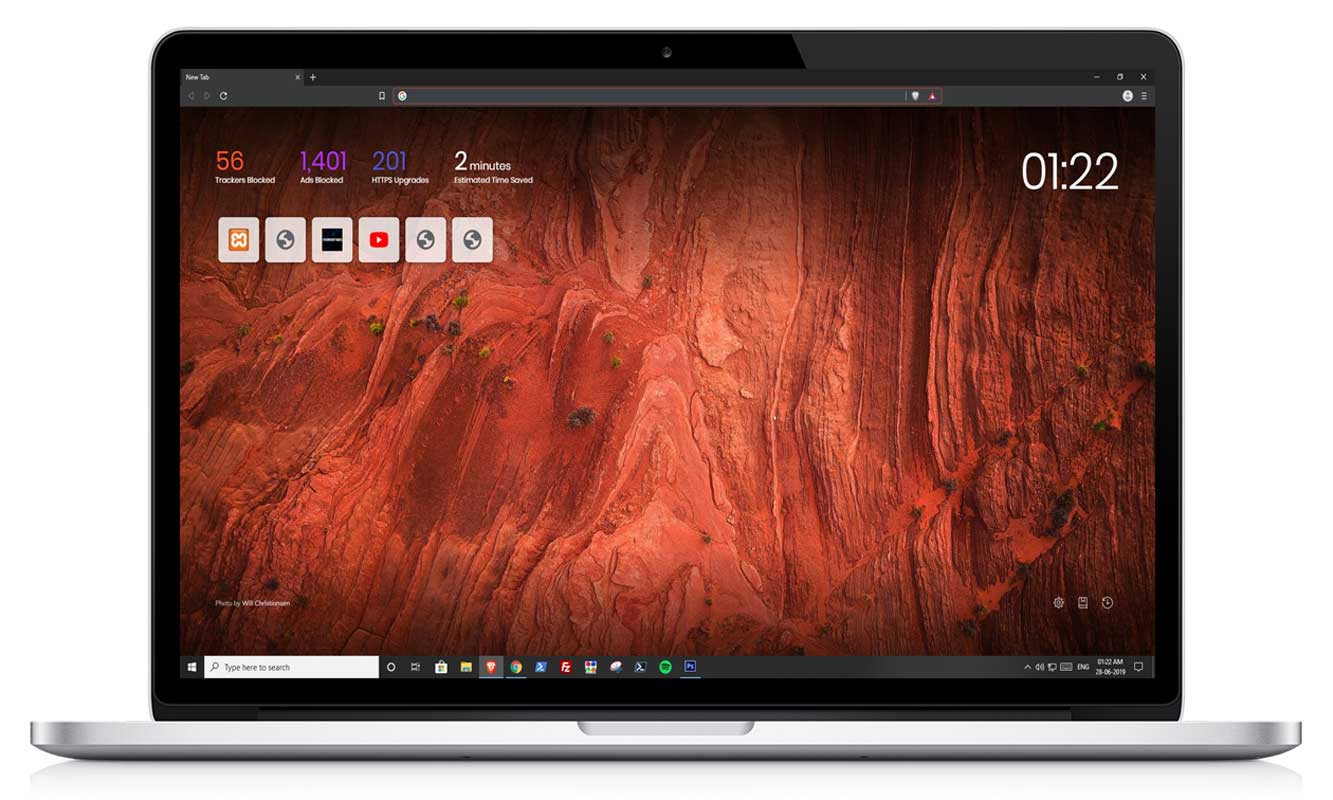Last updated Nov 5, 2020
If you’ve ever made the transition from Windows to Mac, you’ll know there are several differences between the two platforms. While Windows comes standard with the Edge browser (and before that, Internet Explorer), Macs come preloaded with Safari.
The Brave Browser interface is very simple, and its design makes for a distraction and complication-free browsing experience without elements that crowd websites. Open any website by typing your search in the address bar with this app since it uses Google as a search engine. Contents Installing Brave Desktop Mobile Misc. Getting Started Rewards Creators Additional Resources Installing Brave If you haven't already, the Brave Desktop browser for Windows and macOS c. Desktop Browser. Get to know the Brave Browser for Mac, Windows and Linux.
What’s the difference between security and privacy? Security deals with threats to your connection and your data, such as viruses and malware. Privacy handles who has legitimate access to your information. The two ideas overlap at times; restricting third-party cookies and trackers not only keeps your personal information more private, but it can also reduce your exposure to outside threats.
How does Safari compare to other Mac-compatible browsers when it comes to browser security? We’ll cover those questions in this article, and we’ll examine some of the other browsers out there, like Brave, that provide a secure browsing option on your Mac.
Mac browsing safety

One of the reasons Macs are so popular today is because the OS is relatively secure, with a better track record of resistance to malware and virus attacks. This gives any browser on a Mac a slight edge on the security front, but no browser is completely invulnerable. It is important to choose a browser that prioritizes browsing security.
Like most modern browsers, Safari automatically blocks most pop-ups and offers a number of options to manage cookies. What Safari doesn’t block is unwanted ads and the third-party trackers that accompany them. To block those, you’ll need to download various extensions to your browser. These browser extensionsbring their own risks; extensions can potentially see all your browsing activity. If you download the wrong one, you might find you’ve installed a piece of malware, causing far more headaches than they’re worth.
For that reason, many Mac users opt for browsers that have reliable ad blockers and other security features built-in.
Safari alternatives - considerations
There are other considerations with Safari that lead some users to find alternatives. As a Mac-only product, it lacks the vast library of extensions and customization options that other cross-platform browsers have.
So what is the safest browser for Mac?
Safest browser for Mac
So if you’re looking for a more secure browser for Mac, what are your options? Here’s a quick rundown of the top choices.
Brave Browser Mac M1
Brave
A relatively new browser with a radical new approach to the Internet, the Brave browser blocks all trackers by default so it moves incredibly fast while you’re browsing. Brave Shields not only stop trackers, but it also blocks all unwanted ads; instead, you choose to view select ads through an opt-in system that keeps your information secure by storing everything locally on your computer.
Best of all, you’ll be rewarded for any ads you do view with the Basic Attention Token (BAT). If you want to try Brave out, but don’t want to miss your old favorites from your old browser, you can import your settings and bookmarks. Like Safari, Chrome, and Firefox, Brave uses Google Safe Browsing to track emerging threats like malware and viruses.
Brave Browser Mac Review
Brave’s servers don’t save your browsing data, making it very private. Plus Brave, unlike Safari, allows you to use Private Browsing with Tor, taking advantage of Tor’s anonymous browsing within Brave itself.
Compared with Safari, Brave has all the safety features you want, and some you didn’t even know you needed.
Chrome
Chrome has long been known for its speed, although it’s an open question about how fast it actuallyis. The bigger concern with Chrome is its security and privacy; Chrome relies on Google’s Safe Browsing index like most other major browsers. But the privacy concerns are a different story - Google tracks your search history in Chrome, as well as in Google Search, as well as YouTube, Google Maps, and any other product they offer. This raises a lot of questions about how Google handles your data. While you could always browse with Chrome in Incognito mode, that’s an extra step, for only a minimal amount of extra protection.
Of course, in exchange for all that personal information, you get highly personalized ads! But if you’d rather pass on the ads and keep your data to yourself, you may want to consider a different alternative. Brave won’t send you ads unless you want to be rewarded for the experience and keeps all your data local to your device.
Firefox
Firefox is a popular browser on both Mac and Windows, making it an appealing choice as an alternative browser. With a wide variety of add-ons, Firefox allows you to really personalize your browser. Firefox also features regular updates, an important part of keeping a browser secure from new and emerging threats.
There’s a good reason Firefox is a popular alternative to Safari - it offers a safe and secure choice, particularly for workplace computers that might not allow more unusual browsers. Firefox doesn’t offer the full protection of Brave Shields but is a safe alternative to Safari.
Conclusion
Safari measures up fairly well to most cross-platform browsers like Chrome but lacks the extra safety and privacy features of privacy-first browsers like Brave. Given Safari’s known shortcomings regarding newer web platform features, many users prefer to switch to a more secure browser. With Shields to block trackers and unwanted ads and an unparalleled emphasis placed on your security and privacy, Brave is the best choice for a secure browser for your Mac.
